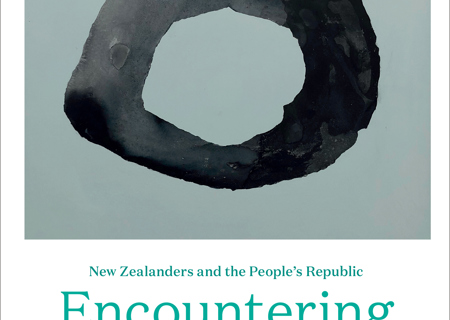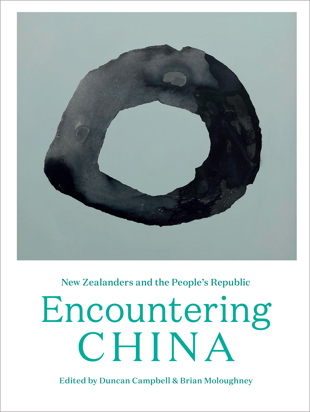Encountering China: New Zealanders and the People’s Republic edited by Brian Moloughney and Duncan Campbell has been reviewed for Capital’s book club.
Alexander McKinnon writes:
‘Fifty years ago, New Zealand followed several other Western countries in formally recognising the People’s Republic of China. Diplomatic relations were established and embassies opened. Encountering China, edited by Duncan Campbell and Brian Moloughney commemorates this milestone by bringing together fifty contributors’ stories of subsequent interactions between New Zealand and China.
It is a job well done. Individually these memoirs are absorbing and enjoyable. Collectively the book gives a picture of the breadth and depth of the relationship that is often overlooked. In a time when China assessment seems increasingly polarised it is good to read balanced and respectful commentary. This book will now be an important part of the primary record for New Zealand.
Selecting even fifty contributions must have been tough given the scale of China, and the speed of its change and that of the China New Zealand relationship. There are contributions from the early years of the embassy in then Peking; from some of the original exchange students who won scholarships to China; from New Zealanders of Chinese heritage; and from witnesses to 1989, trade promoters, union organisers, poets, writers, academics, and researchers. They are all incisive and well informed and in many cases tell highly interesting or amusing first-hand stories. The book has the dimensions of something rather learned. I read it by the beach and everyone was impressed. But it reads easily, engagingly.
To give some specific examples: Chris Elder is dry and amusing on Muldoon’s April 1976 visit to China; Tony Browne’s tale of tracking down Dr Li is gripping, while Mavis Mullins’s anecdote about Pita Sharples is very funny, and her clear-eyed assessment of business suitability for China is refreshing. Adam Osborne-Smith gives a realistic assessment of self-propelled foreigner- life that is recognisable to younger people experiencing China more recently. Luke Qin and Bo Li both give balanced accounts of their journeys from Chinese citizens to New Zealanders. The late John Needham’s essay “Hong Kong Revisited” is a lapidary work of art in its own right.
Lewis Mayo has a remarkable essay linking the human and physical geologies of China and New Zealand (specifically Auckland) via Hone Tuwhare. Tuwhare appears again (and a poem of his opens the collection) in Jacob Edmond’s elegiac reflection on what China can show you about New Zealand. These two pieces talk to each other in a way that is common through the collection, and enhances it.
There is also the search for the korowai gifted to Mao and several historically valuable first-hand accounts of globally important people — Hua Guofeng, Zhao Ziyang (both premiers of China), Rewi Alley — and events: Democracy Wall, 1978, Tiananmen Square, 1989, the Sichuan earthquake, 2008 and, in New Zealand, the apology for the 19th century poll tax on Chinese migrants.’
Read the full piece here.


